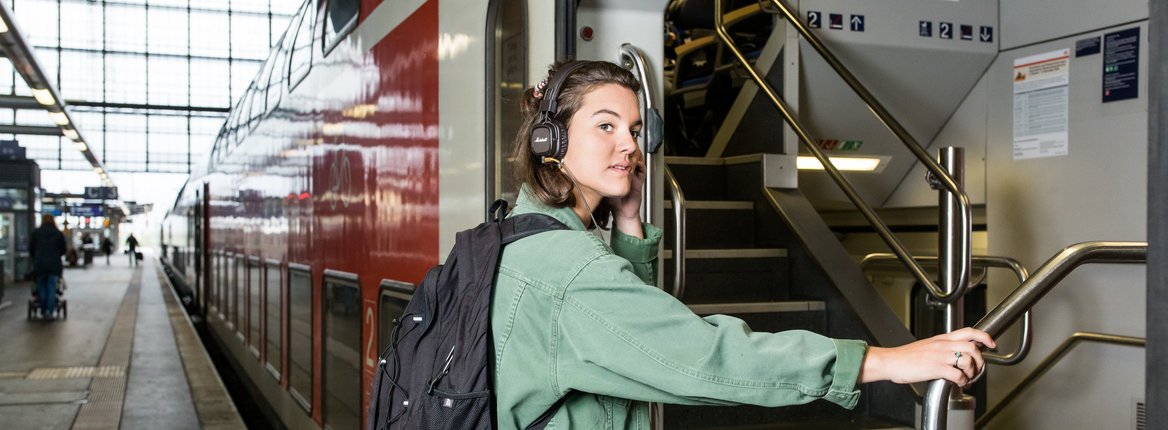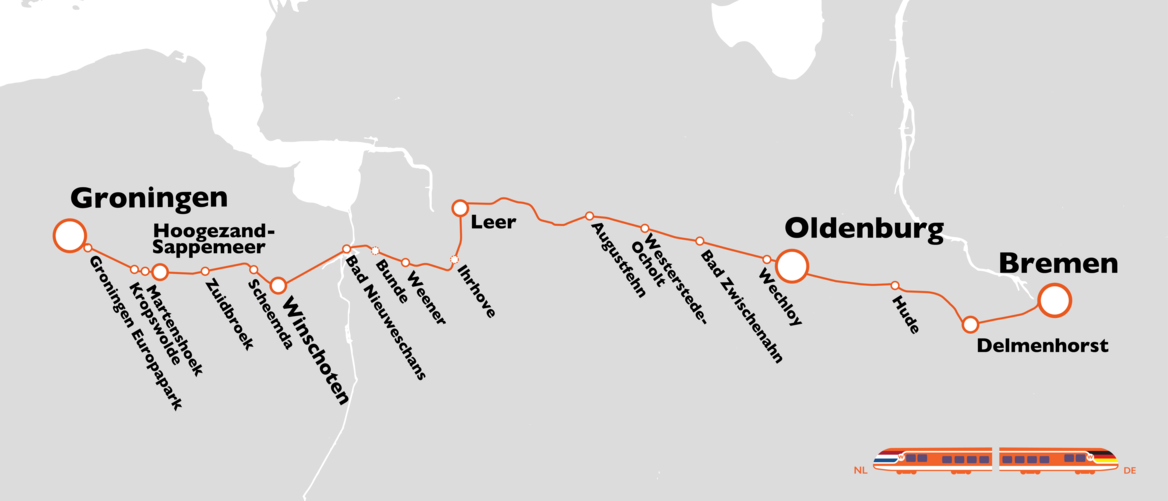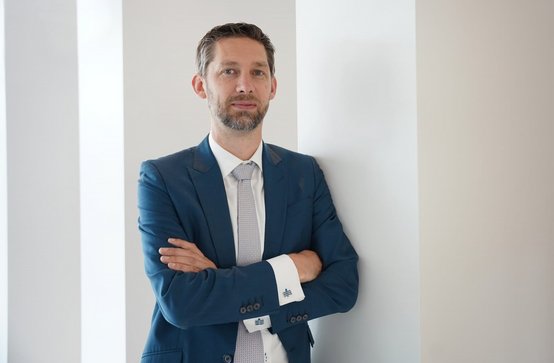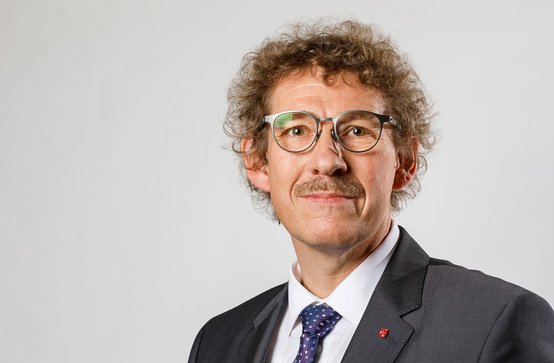
The province of Groningen, the state of Lower Saxony and Bremen are working intensively with Deutsche Bahn (DB) and ProRail on the realisation of the Wunderline, the cross-border train connection between Groningen and Bremen. This realisation will increase the speed on the route, shorten the journey time for passengers and make travelling from door to door more comfortable.
Quality improvement of the rail link between Groningen and Bremen will ensure a comfortable, fast and international train connection with shorter journey times. This will bring the Netherlands and northern Germany closer together. This will soon make it easier for students and employees to study and work in the neighbouring country. For tourists, the train will become more attractive to cross the border with for a day trip.
In the coming years, we will work on the route and the adjacent stations. The journey will not only be shorter, but also more comfortable. That way, the train will eventually offer a sustainable and equal alternative to the car. We will do this in steps.

Map of the Groningen - Bremen route with all stations. The stations Ihrhove and Bunde will be commissioned in 2025.
Equally important: residents of the border regions should be able to travel easily to and from the Wunderline stations. This is why we are improving the connection of different means of transport. Fast and comfortable door-to-door travel! We also ensure that the station becomes a pleasant waiting place. Think of opportunities to get something to eat or drink, water taps and a good, covered waiting area. For all these things, we will work together with municipalities and transport organisations along the railway in the coming years.

“Wunderline and Friesenbrücke are the long-awaited cross-border connections between Germany and the Netherlands. An important development for the entire region, and thus for the inhabitants of our province of Groningen and all the municipalities along this railroad line. I am pleased that this will also give both countries a better connection to the European rail network towards Amsterdam and Copenhagen. This means that in the future, people in Groningen and northern Germany will not only be able to travel faster and more comfortably between Bremen and Groningen, but will also be able to reach more distant destinations more easily by train.”
Deputy of the Province of Groningen Johan Hamster
Rail connections are crucial for regional economic growth. The Wunderline connects Groningen, Oldenburg and Bremen with surrounding regions, making the region an important engine between the Netherlands and northern Germany. This promotes cross-border mobility, tourism and a barrier-free labour market.
According to the European Commission, border regions miss on average 8% economic growth due to border barriers. The Wunderline provides efficient cross-border transport, essential for economic growth and employment. Investing in these connections stimulates the economy and creates jobs.
To meet the climate goals of a climate-neutral Europe by 2050 and a 55% reduction in greenhouse gas emissions by 2030, transport emissions must be reduced. This can only be done by encouraging more environmentally friendly mobility. Shorter journey times, renovated stations, extra comfort and better accessibility make the train between Bremen and Groningen more attractive, also for motorists. In this way, the transition to climate-friendly mobility is realised step by step.

“The Wunderline and the construction of the new Friesenbrücke will not only make rail more attractive to people: it is the long-awaited lifting of a missing link in a trans-European rail link between Germany and the Netherlands. This project brings Europe closer together. The Wunderline is a good alternative to the car and we make a contribution to climate neutrality: until now, there was no possibility for cyclists and pedestrians to cross the Ems within a radius of more than six kilometers. Together with the reopening and modernization of the stations along the Wunderline, we are creating important building blocks for the mobility transition.”
State Secretary of Lower Saxony Frank Doods
The Wunderline has been named by the EU as a 'flagship project' (exemplary project). It receives strong support at regional, national and European level. Since 2015, the European Union has provided funding twice for studies and the first construction phase. Province of Groningen, Land Lower Saxony, Bremen and governments on both sides of the border are working together to realise the project. Currently, the Wunderline partners are jointly exploring ways to realise the second construction phase.